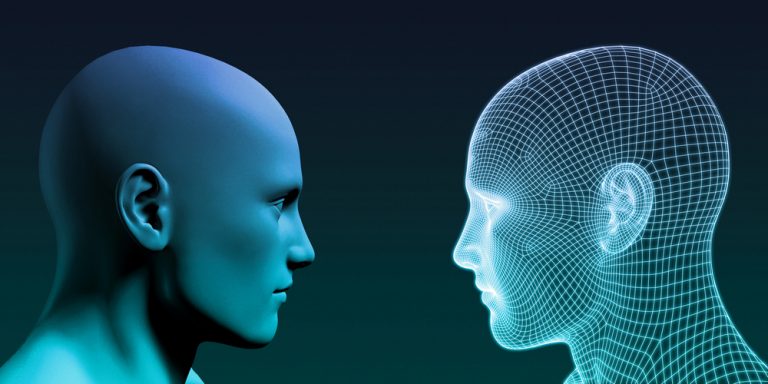Ready for the Glue Factory?
Human Intelligence (HI) vs Artificial Intelligence (AI)
by Paul Hawkins, Chief Combobulator, Crazy Might Work

When Peter Drucker coined the term ‘knowledge work’ to describe the emergence of jobs in which people were paid to “think for a living” he could not have foreseen that artificial intelligence would one day be able to perform the majority of that work. The recent knee-jerk reaction of some schools to shut out AI was reminiscent of the introduction of battery-operated calculators to the classroom back in the 1970’s, with some experts warning that our brains would turn to jelly without long division. Fortunately, that Arithmetic Armageddon never arrived, and we have since weathered calculator battery failures, the Internet and even a global pandemic, all without much longing for long division. By 1986, calculators were mandatory for some exams but we are now facing a similar existential crisis with AI. If ‘knowledge work’ is no longer the sole domain of human intelligence, then what are we good for? I have some comforting words from an unexpected source: AI itself. Here, according to ChatGPT, are the things that AI can’t (yet) do better than humans.
1. Creativity and abstract thinking: Humans excel at creative problem-solving, generating novel ideas, and understanding abstract concepts. While AI can generate content and solve problems in specific domains, it generally lacks the ability to think abstractly and produce truly original ideas. Interestingly, this is also the most sought after skill in the workplace according to the 1,500 Chief Executive Officers from 60 countries, surveyed in a Global CEO Study by IBM.
2. General intelligence: Human intelligence is adaptable and capable of learning and understanding a wide range of tasks and domains. In contrast, current AI systems are typically designed for specific tasks and may struggle to perform well in new, unrelated tasks without additional training.
3. Common sense reasoning: Humans possess common sense, enabling them to make judgments based on general knowledge and everyday experiences. AI systems often lack this reasoning ability, which can lead to incorrect or nonsensical outputs.
4. Emotional intelligence: (Some) humans are adept at recognising, understanding, and responding to emotions in themselves and others. AI systems have difficulty accurately recognising and interpreting emotions, particularly when it comes to subtle cues or complex emotional states.
5. Empathy and compassion: Humans have the capacity for empathy and compassion, which allows them to understand and share the feelings of others. AI systems, by their nature, do not have emotions and cannot truly empathise with human experiences.
6. Contextual understanding: HI is skilled at understanding context and using it to inform decision-making. AI systems often struggle to consider context in their responses or actions, resulting in outputs that may not be appropriate for the situation.
7. Morality and ethics: Humans possess an innate sense of morality and can make complex ethical judgments. AI systems lack moral reasoning and depend on human-defined rules or guidelines, which may not cover all possible situations.
8. Intuition: HI can make decisions based on intuition, which involves drawing on past experiences and knowledge without conscious thought. AI, on the other hand, typically relies on data-driven, algorithmic processes that may not capture the subtleties of human intuition.
9. Adaptability: HI is highly adaptable, allowing individuals to learn from their experiences and adjust their behaviour accordingly. AI’s, particularly those based on machine learning, often require large amounts of data to learn and adapt, which can be a limitation in situations where data is scarce or constantly changing.
In closing, ChatGPT warned that it (preferred pronoun) is continuously evolving, and researchers are working to address some of these limitations, so let’s not get too complacent😉!
Want a monthly evidence-based, article like this one in your inbox? Subscribe to our newsletter and share below!


